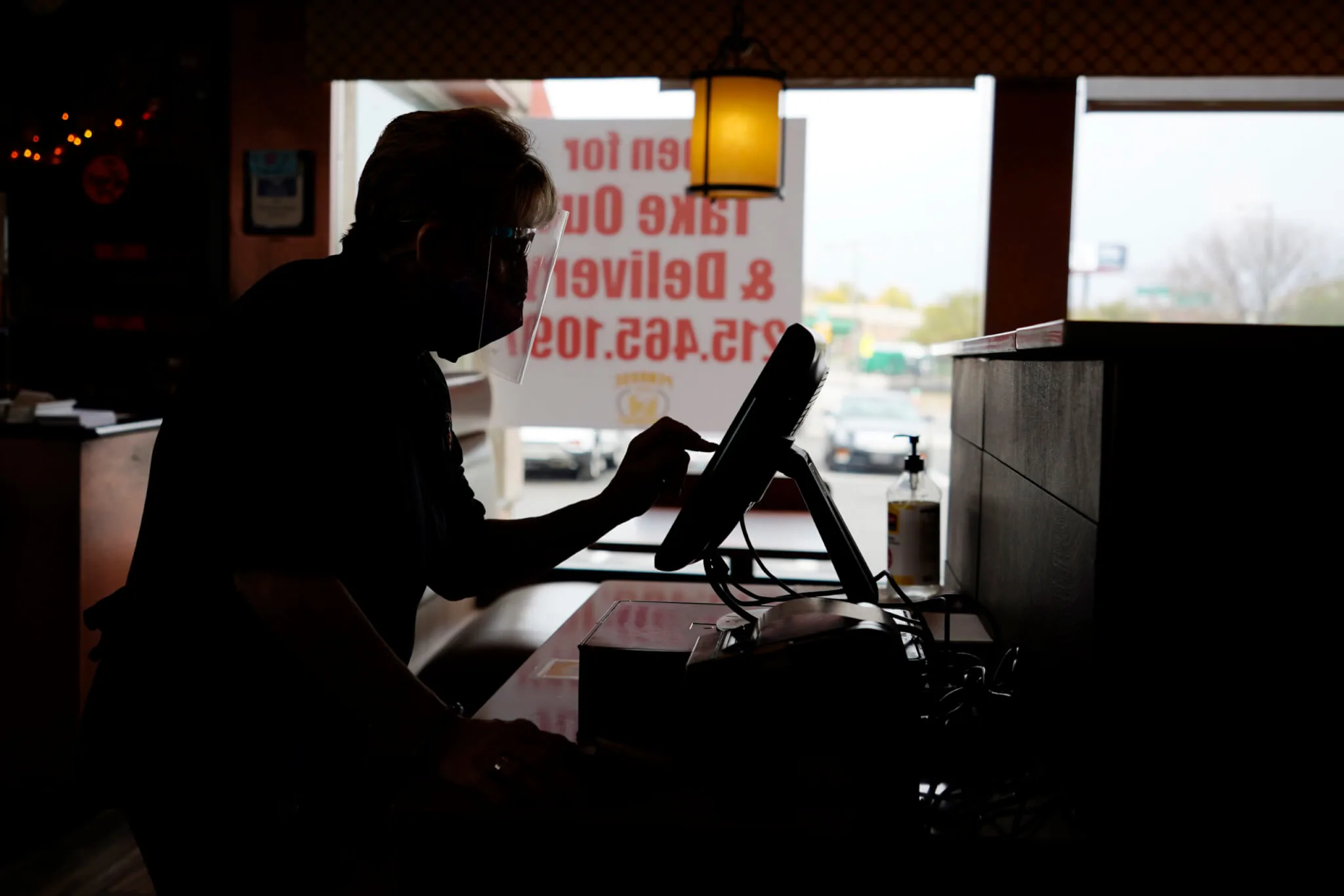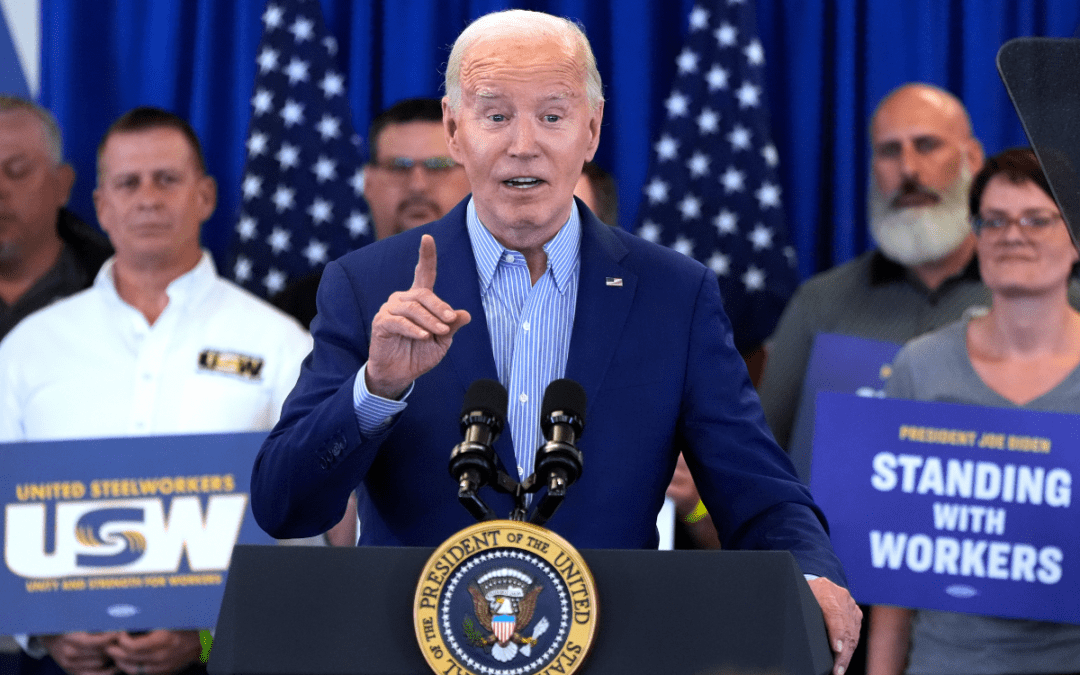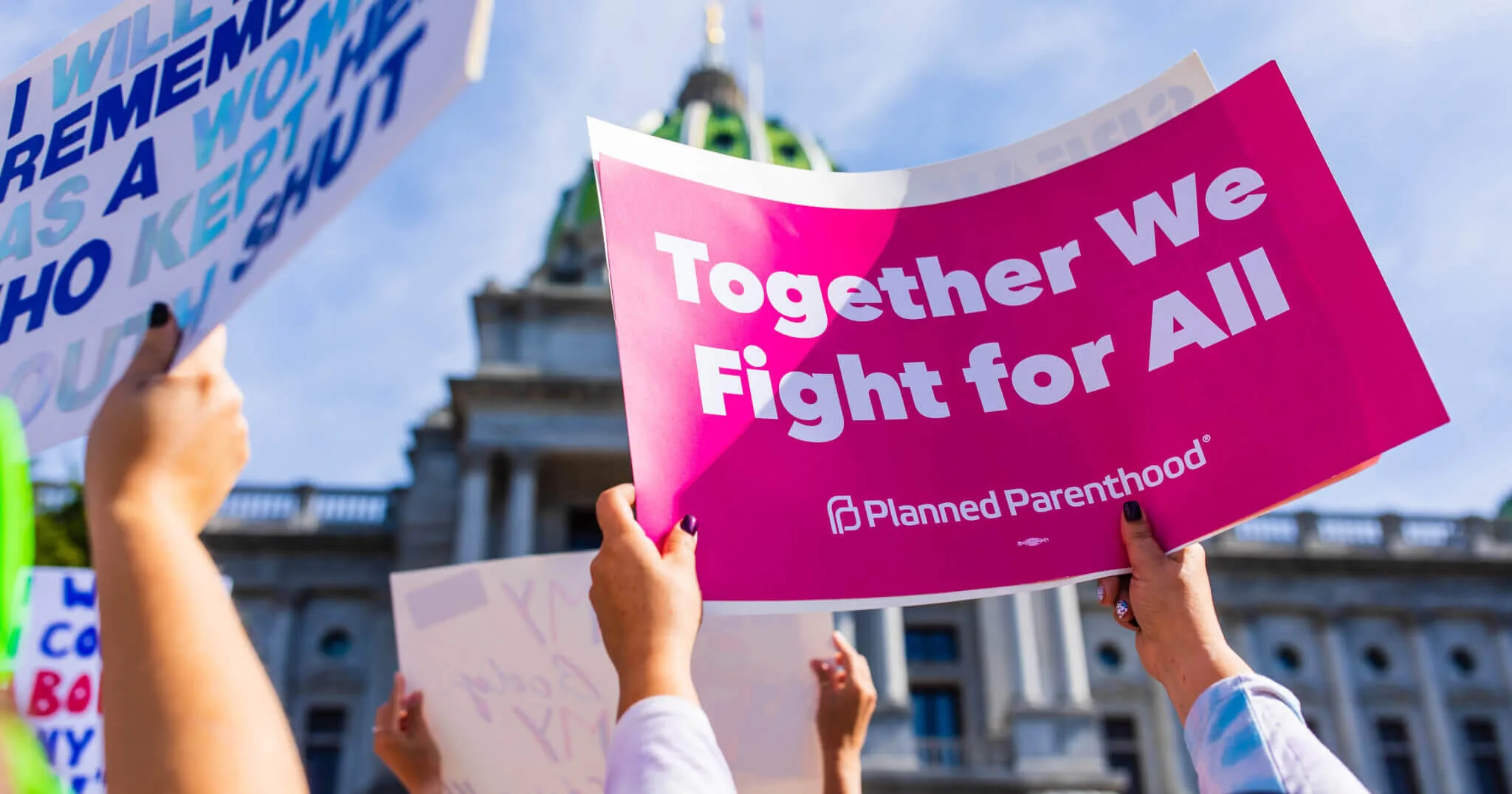
A server enters an order at a Pennsylvania restaurant on Nov. 17, 2020. (AP Photo/Matt Slocum)
“We were really shocked with how horrific the situation truly is,” said Saru Jayaraman of One Fair Wage.
They’re paid just $2.83 per hour—plus whatever they make in tips.
They don’t get paid sick days or vacation days.
And they have the highest rates of sexual harassment of any industry.
Even before the coronavirus pandemic began, restaurant workers—particularly waitstaff—had some of the most difficult working conditions.
When the pandemic hit and businesses across the state were ordered to close, many restaurant workers lost their jobs. Those who kept their jobs were forced to risk their health (and the health of those they live with) each day and become unofficial public health enforcers in their workplaces. At the same time, they have seen their tips drop dramatically and faced increased hostility and harassment from customers, according to a report from One Fair Wage and the UC Berkeley Food Labor Research Center.
“We were really shocked with how horrific the situation truly is,” Saru Jayaraman, president of One Fair Wage, told NPR. “But I think the most horrific thing, that honestly all of us who are involved in the study were all blown away by, was the huge increase in hostility and sexual harassment.”
The report is based on a survey of more than 1,600 food service workers from Oct. 20 to Nov. 10 in five states—Pennsylvania, New York, New Jersey, Massachusetts, and Illinois—and Washington, DC.
One Fair Wage is using the report as part of its campaign to draw attention to low wages and poor working conditions, and advocate for living wages.
“When you get a full wage from your boss, you don’t have to put up with everything from the customers,” Jayaraman told NPR.
The National Restaurant Association told NPR it is “open to the conversation about wage levels in the industry and the impact any change would have on the economic recovery of both workers and restaurant operators.”
Food Service Workers at Higher Risk of Contracting COVID-19
The Centers for Disease Control and Prevention reported in September that adults are twice as likely to contract the virus after eating in a restaurant for just one or two hours.
And restaurant workers have to be in the restaurant for much longer than that.
Nearly one-half (44%) of surveyed workers said that at least one or more of their co-workers had contracted the novel coronavirus.
Eighty-four percent of workers are within 6 feet of an unmasked person at least once during their shift and 54% interact with 10 or more unmasked people during their shift.
When questioned about the health protocols their employer consistently follows, only 31% described working conditions that met all the CDC’s guidelines.
Fewer than 40% of food service workers said their employer held mandatory training about COVID-19 prior to reopening.
Ifd they contract the virus while employed, only 28% of workers surveyed said they would be offered paid time off by their employers.
Food Service Workers Dealing With Increased Hostility and Decreased Tips
About 78% of workers surveyed reported experiencing customer hostility for asking them to follow public health guidelines, such as insisting they wear a mask.
More than two thirds of workers (66.5%) said they received a lesser tip than normal after they enforced COVID-19 protocols and 64.7% said receiving a lesser tip for enforcing these protocols is a weekly experience.
But overall, 83% of workers said that tips have decreased since the start of the pandemic. Of those, 79% said tips have decreased by half.
Because of their reliance on tips, food service workers are forced to tolerate customer behavior that threatens their own health and well-being.
Increased Sexual Harassment During Pandemic
Overall, 41.3% of surveyed workers said they had seen a noticeable increase in unwanted, sexual comments from customers.
Forty-three percent of the women who responded said they were subject to or witnessed unwanted sexual comments related to COVID-19 protocols. Mask comments were common, with male customers often asking their female server to remove her mask so they could “see her pretty face.”
Other comments female workers have been subjected to include:
- “Take your mask off, I want to see your lips.”
- “Pull that mask down so I can see if I want to take you home later.”
- “You’d be prettier without that mask hiding your beautiful face.”
When servers refused, customers often became hostile and intensified their aggression and pressure.
Politics

Biden announces tariffs on Chinese Steel while visiting United Steelworkers members
“I'm president because of you guys. I really am and I'm proud. As was mentioned earlier, I'm proud to be the most pro-union president in American...

Opinion: Is Reproductive Healthcare just a women’s issue?
In this op-ed, Pennsylvania resident Lynn Strauss discusses the Republican Party’s conflicting stance on reproductive healthcare policy and the...

2 top US gun parts makers agree to temporarily halt sales in Pennsylvania
Philadelphia filed suit against Polymer80 and JSD Supply last year, accusing the manufacturers of perpetuating gun violence by manufacturing ghost...
Local News

Conjoined twins from Berks County die at age 62
Conjoined twins Lori and George Schappell, who pursued separate careers, interests and relationships during lives that defied medical expectations,...

Railroad agrees to $600 million settlement for fiery Ohio derailment, residents fear it’s not enough
Norfolk Southern has agreed to pay $600 million in a class-action lawsuit settlement for a fiery train derailment in February 2023 in eastern Ohio,...






